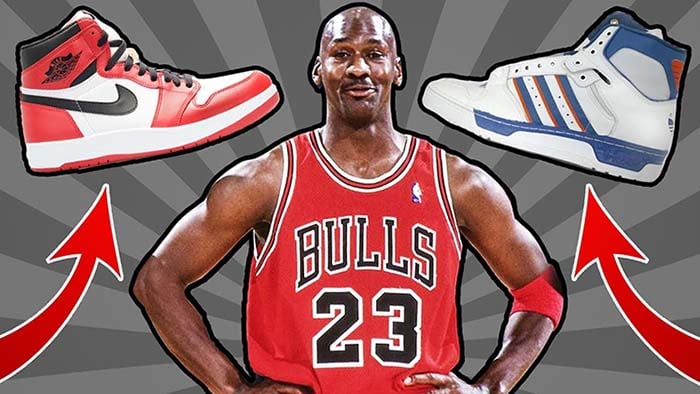
When Michael Jordan signed with Nike, the world of sports changed forever. It was a gamble for both sides, but it paid off handsomely for both in the long run. Shoe sales, apparel, pop culture; it all swung to Nike as a result of the success and popularity of Michael Jordan and the Jordan brand.
When there’s a big winner in something like this, there’s inevitably also going to be someone who finishes in second place.
That runner up was Adidas. We’ve chronicled where it all went wrong for Adidas and how the company lost out on billions of dollars in revenue. From what Adidas did wrong, to what Nike got right, it’s a story you have to read to fully understand.
So, flip through these slides and see how Adidas lost its crown as top dog in the sneaker game.
Adidas Ruled the 1970’s

The sneaker game changed in the 1970’s. Up to that point, basketball players were largely wearing sneakers that were not that much different from sneakers worn off the court. For example: the Chuck Taylor’s you pulled off the rack were pretty much the same Chuck Taylor’s worn by Wilt Chamberlain.
Adidas changed this in the 1970’s when they began to upgrade the performance abilities of their top of the line shoes. This started with the Adidas Top 10. That shoe was popularized by the best in the game, such as Kermit Washington, Bob Lanier, and Mitch Kupchak. Kareem Abdul-Jabbar became the first athlete to endorse a basketball shoe with his low-cut Adidas Jabbar.